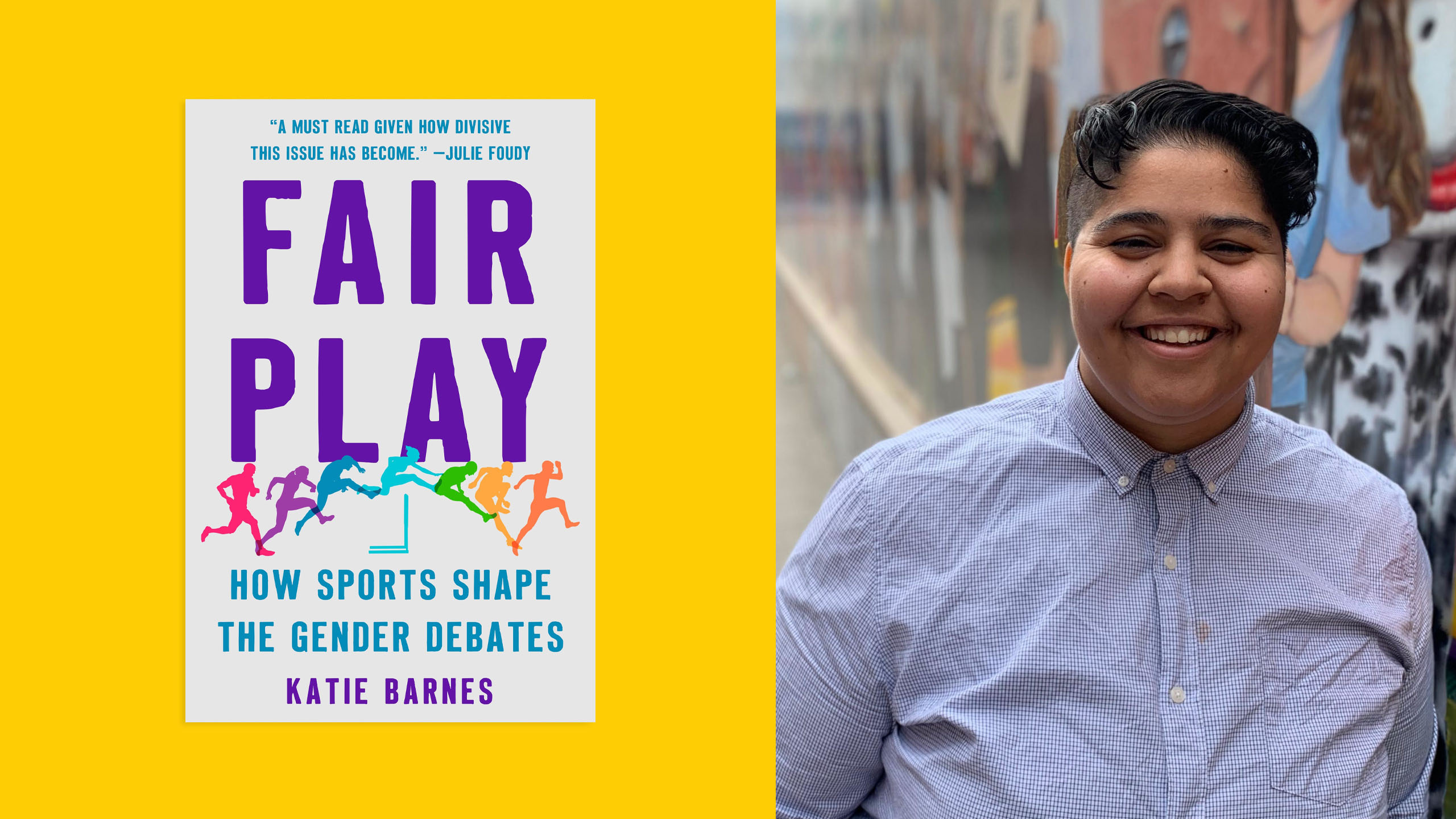The unwritten but widely understood concept of “fair play” in sports emphasizes that people play by the rules of the game, do not cheat or possess an unfair advantage and show respect for fellow athletes. The phrase first appeared in Shakespeare’s writing in the 1500s, but became popularized as it pertains to sports in the 1800s thanks to Pierre de Coubertin, educator and co-founder of the modern Olympics. Setting out to unite the world through sport and competition, he believed in the “spirit of fair play.” Today, the concept is still prevalent in all types of competition, at all levels, and is the name of Katie Barnes’s debut non-fiction book. Fair Play: How Sports Shape the Gender Debates offers a meticulous examination of the role sports play in “the gender identity debate.” The book tackles the thorny issues around trans athletes’ participation at high school, collegiate and professional levels, and how it all relates back to the fairness principle. Astutely crafted and written with empathy and clarity, Fair Play is a fastidious examination of the past, present and future of women’s sports.
Barnes is a non-binary award-winning LGBTQ2S+ sports journalist who grew up in rural Indiana and found refuge in basketball, first playing varsity ball, then moving on to coach the game in college. A feature writer for ESPN, they have been reporting on trans athletes since 2016. Fair Play is based on their ongoing work from the past half a decade.
“I thought I was going to write a book that centred stories about trans kids playing sports all across the country,” Barnes tells Xtra. “There were some stories that needed to be told.” But in recent years in the U.S., as more anti-trans bills passed and legislative targetting occurred, Barnes could see that that type of rhetoric was starting to creep into political discourse and a more extensive conversation would be necessary. The trickle-down effect of such laws was beginning to create a culture of fear and distrust among trans youth and their participation in school sports.
Barnes realized that writing about something that targets and affects their community would be no easy feat. “I could see that this was going to be a bigger issue,” they say. “As a queer person or as a trans person, it’s scary times. For me, it was the incredible sense of duty that I felt to my community that allowed me to finish. It took longer to write than I thought because of the challenges I felt mentally and intellectually during that stretch of time.” Not only was it tough to tackle such a personal subject, but they also had the arduous task of incorporating developing news stories into book form. Fair Play tells the specific stories of trans athletes like Mack Beggs and Lia Thomas, but pushes beyond their personal narratives to include a comprehensive analysis of a sometimes difficult, emotional and complicated topic. These are a handful of well-known athletes whose lives and careers have been affected because of the intense scrutiny they faced, and Barnes tells their stories with dignity and compassion.
Fair Play focuses mostly on the current American context and its policies, and near the beginning of the book is a chapter on Title IX, the 37-word clause nestled into the American Education Amendments Act that recognizes gender equity as a civil right and banned sex-based discrimination in education. When it was passed in 1972, it was not about athletics, but was eventually adopted and greatly impacted sporting culture. Title IX forever altered women’s sports and provided opportunities that were previously unfathomable. In the 50 years since its passing, Title IX has opened doors, but also codified sex-separated sports and begat several unexpected shortcomings, which Barnes refers to throughout Fair Play. Title IX, in its fight for equality, along with the concept of fairness, set the stage for how women’s sports is organized today.
Each chapter flows beautifully into the next, as Barnes breaks down knotty topics such as policies governing trans and intersex athletes and the history of how those policies came into place, the science of sex in sports, the role that medical transition and hormone levels play in dictating participation and feminist attempts to “protect” women’s sports.
Barnes also includes an important chapter on trans men athletes and the lack of attention paid to them when it comes to policy for trans people in sports. The notion of keeping trans women out rather than including trans men stems from a specific kind of misogyny and prevailing attitude that is ingrained in athletics. Barnes writes, “Transgender girls and women are viewed as threats to women’s sports because of their sex assigned at birth and the perception of competitive advantage. It’s the opposite for transgender boys and men. They aren’t considered a threat at all because of their sex assigned at birth.
“It’s important to acknowledge that the conversation about transgender girls and women participating in sports in accordance with their gender identity has opened the door to a vast amount of transphobia that extends far beyond a sincere question about the ways in which testosterone-driven puberty affects physiological and metabolic advantages in sports,” writes Barnes.
Looking ahead, the author isn’t optimistic about the immediate future. They predict that we are heading into a moment of real discomfort and dystopia. “From an international sporting perspective, we’re really just at the beginning of seeing an update of policies that will look more restrictive,” they say.
They mention an incident from the summer that involved a nine-year-old girl at a Kelowna, B.C., track meet where she was falsely accused of being trans. The incident sparked outrage and support from around the world, but Barnes fears this kind of policing and misgendering accusations will become more common.
Barnes doesn’t have all the answers, but in Fair Play they pose important questions that sports organizations are currently grappling with and are ignored by mainstream media. If we are truly fighting for an inclusive culture, it would be wise to consider those questions, Barnes’s observations and potential solutions. Fair Play ends with some of their ideas for a possible way forward and how to create a more gender-inclusive sporting culture.
We may not admit it, but sports is more than just a game; it mirrors society, and if we pay attention, we can see our values reflected back at us. Barnes writes, “Whether we realize it or not, our sports are coded, laden with allusions to gender and sexuality in ways that are fundamental to our collective understanding of both athletics and gender. It’s the hypermasculine displays in football, the hyperfeminine expression in women’s gymnastics.”
The sports world is filled with countless examples of our adherence to the gender binary and the sticky problems that arise with that rigidity. How we treat athletes and police their bodies on the field is a reflection of how we treat and police bodies off the field. Fair Play asks us to consider why and how current systems exist and to reflect on imaginable ways to truly create a culture of fairness in sport.
“I think any time we [enact] pretty strict gender regulation, which is what’s happening here in the United States, and in international sport broadly, there’s going to be a policing of that boundary, and the policing of that boundary can very well take the form of things that we are dramatically uncomfortable with. It’s not going to be as simple as this is what my birth certificate says.”


 Why you can trust Xtra
Why you can trust Xtra


